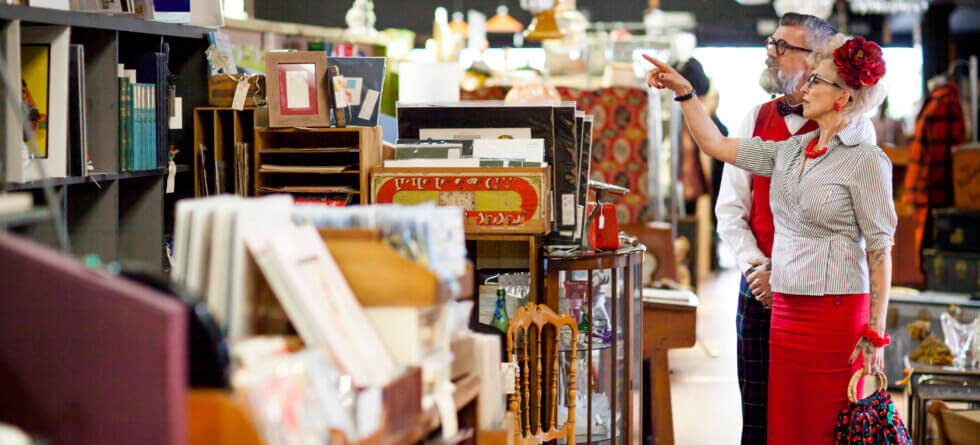Antiquing is a fascinating hobby that combines history, art, and the thrill of the hunt. For many seniors, it offers a delightful way to spend time, discover relics of the past, and perhaps even make some profitable finds. Whether you’re a seasoned collector or new to this world, exploring the realm of antiques can be both enjoyable and rewarding. This guide will walk you through everything you need to know about getting started in antiquing, from understanding what makes an item an antique to tips for making wise purchases.
What is Antiquing?
Antiquing is the activity of seeking and acquiring items from past eras—typically at least 100 years old. The appeal of these items can be due to their aesthetic, historical significance, rarity, or potential monetary value. Antique items can range from furniture and artwork to jewelry and books.
Why Antiquing Appeals to Seniors
Antiquing holds charm for older adults for several reasons:
- Nostalgia: Antique items often bring back memories, offering a personal connection to different times.
- Intellectual Stimulation: Learning about historical periods, craftsmanship, and the provenance of items keeps the mind active.
- Social Engagement: Antiquing can be a social activity, whether it involves traveling to antique stores and auctions with friends or joining clubs and societies.
- Physical Activity: Browsing shops and markets provides gentle physical activity.
Getting Started with Antiquing
Diving into the world of antiques can be as easy as walking into your local antique shop or as involved as attending a grand auction. Here’s how you can get started:
- Educate Yourself: Before you start buying, learn about the types of antiques that interest you. Books, online resources, and antique fairs are great educational tools.
- Set a Budget: Decide how much you are willing to spend. This will help you avoid overspending and focus your search on items within your price range.
- Visit Antique Shops and Shows: Get a feel for different types of antiques and their price ranges by visiting multiple shops and shows.
- Talk to Experts: Make connections with antique dealers and other collectors who can offer advice and insights.
What to Look For When Buying Antiques
When you’re ready to start buying antiques, keep these important tips in mind to make wise purchases:
- Condition: The condition of an item significantly affects its value. Look for items that are in good shape, or if they are damaged, ensure the price reflects the condition.
- Authenticity: Learn how to identify authentic pieces and beware of fakes and reproductions, which can be prevalent in popular categories.
- Rarity: Items that are more rare or unusual tend to be more valuable. However, rarity can also make an item harder to resell if the market for it is niche.
- Provenance: Objects with a well-documented history or previous ownership can be more valuable.
Tips for Successful Antiquing
Here are some additional pointers that can enhance your antiquing experience:
- Be Patient: The perfect piece can take time to find. Enjoy the process of searching and learning.
- Negotiate: Bargaining is part of the antiquing world. Don’t be shy about negotiating prices, especially if you notice flaws that affect the item’s value.
- Inspect Items Thoroughly: Examine potential purchases carefully for signs of wear, repairs, or alterations.
- Use Technology: Smartphone apps and websites can provide instant information and price comparisons.
- Stay Organized: Keep records of your purchases, including the price, condition, and any historical information.
Exploring Different Types of Antiques
There are numerous types of antiques, each with its own appeal:
- Furniture: Look for pieces by well-known designers or from popular styles like Art Deco or Mid-Century Modern.
- Art: Paintings and sculptures from recognized artists or movements are always in demand.
- Books and Manuscripts: First editions or signed books can be highly collectable.
- Jewelry and Watches: These items not only have intrinsic material value but can also be appreciated based on fashion and rarity.
Engaging With the Antique Community
The antiquing community is vibrant and varied. Engaging with other collectors can enhance your knowledge and enjoyment. Consider joining clubs, participating in forums, and attending lectures or events organized by historical societies.
Conclusion
Antiquing offers seniors a unique blend of adventure, learning, and the chance to own a piece of history. It’s a hobby that challenges both the mind and the eye and can provide immense satisfaction whether you’re rediscovering your past or exploring new historical vistas. With the right approach, every antique purchase can become a treasured part of your life and a testament to the timelessness of beautiful objects. Whether for love, profit, or a bit of both, antiquing is a pastime that only grows richer with age.


